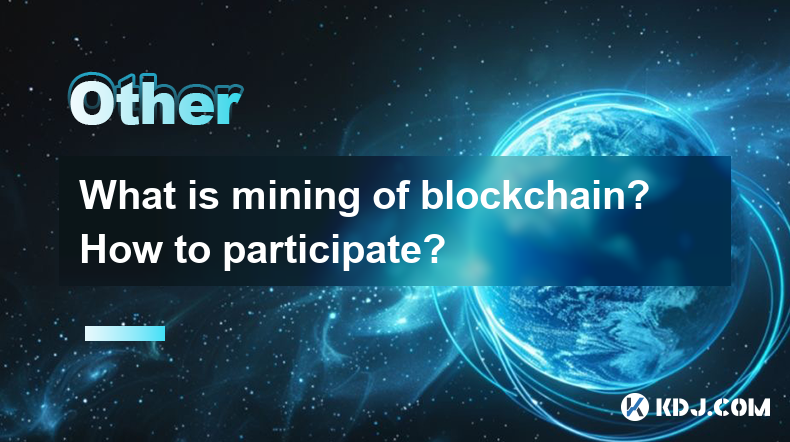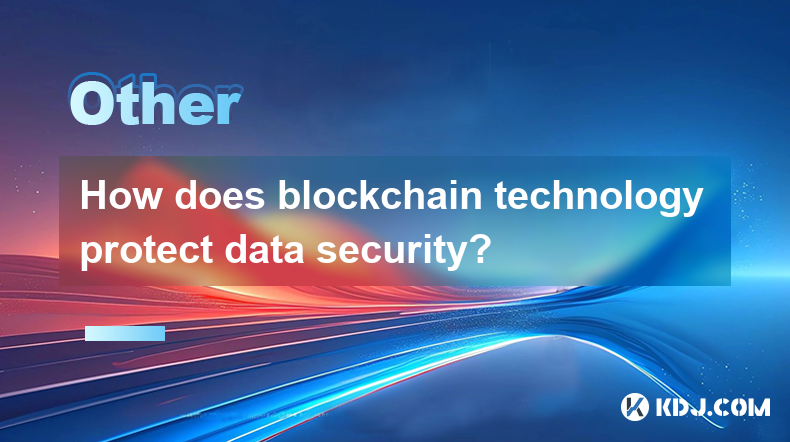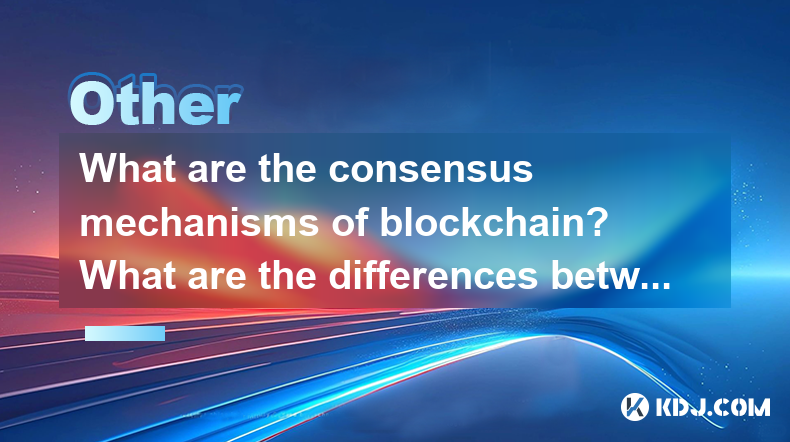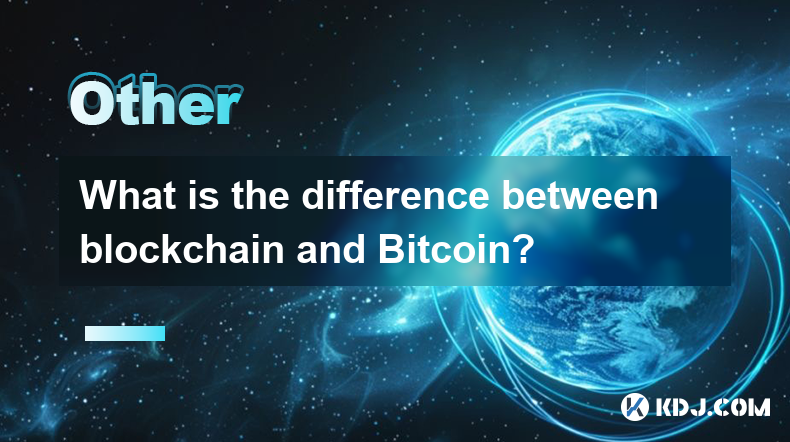-
 Bitcoin
Bitcoin $85,741.8041
-1.46% -
 Ethereum
Ethereum $2,357.0606
-2.48% -
 Tether USDt
Tether USDt $0.9989
0.02% -
 XRP
XRP $2.2067
-0.24% -
 BNB
BNB $609.2236
-0.55% -
 Solana
Solana $133.5023
-6.27% -
 USDC
USDC $0.9999
0.01% -
 Dogecoin
Dogecoin $0.2020
-1.38% -
 Cardano
Cardano $0.6561
-0.43% -
 TRON
TRON $0.2254
-0.43% -
 Chainlink
Chainlink $15.0818
2.06% -
 Litecoin
Litecoin $124.1308
11.20% -
 Avalanche
Avalanche $21.7247
2.58% -
 Sui
Sui $2.8470
1.14% -
 Stellar
Stellar $0.2860
2.09% -
 Toncoin
Toncoin $3.4747
-0.29% -
 UNUS SED LEO
UNUS SED LEO $9.0187
1.91% -
 Shiba Inu
Shiba Inu $0.0...01401
1.52% -
 Hedera
Hedera $0.1932
4.32% -
 Polkadot
Polkadot $4.7894
6.60% -
 MANTRA
MANTRA $7.3625
-4.21% -
 Hyperliquid
Hyperliquid $19.2871
-1.51% -
 Ethena USDe
Ethena USDe $0.9991
-0.02% -
 Bitcoin Cash
Bitcoin Cash $291.2665
2.45% -
 Dai
Dai $0.9996
0.02% -
 Bitget Token
Bitget Token $3.9465
-6.37% -
 Uniswap
Uniswap $7.8485
0.11% -
 Monero
Monero $215.8395
0.20% -
 NEAR Protocol
NEAR Protocol $2.9681
2.42% -
 Pepe
Pepe $0.0...07973
-0.83%
How private is blockchain? Is it really anonymous?
Blockchain offers pseudonymity, not anonymity; while transactions are linked to addresses, not identities, techniques exist to connect them, impacting privacy levels depending on the blockchain and user behavior.
Feb 26, 2025 at 11:13 pm

How Private is Blockchain? Is it Really Anonymous?
Key Points:
- Blockchain is not anonymous: While blockchain transactions are pseudonymous, meaning they are linked to addresses rather than real-world identities, they are not truly anonymous. Various techniques can be used to link these addresses to individuals or entities.
- Privacy-enhancing technologies exist: Several technologies are being developed and implemented to enhance the privacy of blockchain transactions, including zero-knowledge proofs, ring signatures, and confidential transactions.
- The level of privacy depends on the blockchain: Different blockchains offer varying levels of privacy, with some prioritizing transparency while others focus on enhancing user anonymity.
- Regulatory scrutiny impacts privacy: Government regulations and law enforcement efforts are increasingly focused on tracing cryptocurrency transactions, impacting the perceived anonymity of blockchain technology.
- User behavior influences privacy: User practices, such as using centralized exchanges or reusing addresses, can significantly reduce the privacy offered by blockchain.
Unordered List of Detailed Steps:
- The Pseudonymous Nature of Blockchain: Blockchain transactions are recorded publicly on a distributed ledger. However, these transactions are typically linked to cryptographic addresses rather than directly to individuals' names or other personally identifiable information (PII). This is what is often referred to as pseudonymity. Each transaction shows the sender's address, the recipient's address, and the amount of cryptocurrency transferred. The addresses themselves are long strings of alphanumeric characters, making it difficult to immediately identify the individuals behind them. However, this pseudonymity is not absolute anonymity. Sophisticated techniques can be employed to link these addresses to real-world identities, potentially revealing the users behind the transactions. This linking can be done through various means, including analyzing on-chain data (transaction patterns, address clustering), off-chain data (KYC/AML information from exchanges), and even through social engineering or investigative journalism. The more transactions a user makes from a particular address, the easier it becomes to link that address to their real-world identity, as patterns emerge and can be cross-referenced with other data sources. Furthermore, the use of centralized exchanges often introduces a point of vulnerability, as these platforms usually require users to provide identifying information for account creation and verification. This information can then be subpoenaed or obtained through other legal means, potentially exposing the user's blockchain activity. Therefore, while blockchain offers a degree of privacy, it is crucial to understand that it does not guarantee complete anonymity.
- Privacy-Enhancing Technologies (PETs): Recognizing the limitations of basic blockchain privacy, various PETs are being developed and implemented to enhance user anonymity. These technologies aim to obfuscate transaction details while maintaining the security and integrity of the blockchain. Zero-knowledge proofs (ZKPs) are a prominent example. ZKPs allow users to prove the validity of a transaction without revealing any underlying information. For instance, a user can prove they possess a certain amount of cryptocurrency without disclosing the exact amount. This is particularly useful in scenarios where privacy is paramount, such as confidential financial transactions. Ring signatures are another PET that enhances privacy by masking the sender's identity within a group of potential senders. The recipient can verify the transaction's validity without knowing the actual sender. Confidential transactions, implemented in some cryptocurrencies like Monero, encrypt transaction amounts and sender/receiver information, rendering them unreadable to external observers. While these technologies significantly enhance privacy, they are not foolproof. Advanced analytical techniques and computational power can still potentially reveal some information, especially with large datasets or over extended periods of transaction history. Furthermore, the implementation and efficiency of these PETs vary across different blockchains, leading to different levels of privacy protection.
- The Blockchain Ecosystem and its Impact on Privacy: The level of privacy offered by a blockchain is also influenced by the specific blockchain itself and its design choices. Some blockchains, like Bitcoin, prioritize transparency, making all transaction details publicly available. This design philosophy enhances auditability and security but compromises user privacy. Other blockchains, like Monero and Zcash, are designed with privacy as a core principle, incorporating PETs to enhance anonymity. The choice of which blockchain to use significantly impacts the level of privacy a user can expect. Furthermore, the ecosystem surrounding a blockchain plays a crucial role. The availability of privacy-focused wallets, mixers, and other tools can influence the overall privacy of transactions. For example, using a privacy-focused wallet that automatically employs techniques like coin mixing can significantly enhance anonymity compared to using a standard wallet. However, the use of these tools can also raise red flags for regulatory bodies and law enforcement, potentially attracting unwanted scrutiny. The interaction between the blockchain's inherent design, the available tools, and user practices collectively determines the overall privacy landscape.
- Regulatory Landscape and its Influence on Blockchain Privacy: Government regulations and law enforcement agencies are increasingly focusing on cryptocurrency transactions, aiming to track and monitor illicit activities. Know Your Customer (KYC) and Anti-Money Laundering (AML) regulations require cryptocurrency exchanges and other service providers to collect and verify user identities. This information can be used to trace transactions back to individuals, effectively undermining the anonymity offered by blockchain. Furthermore, law enforcement agencies are investing in advanced analytical tools and techniques to analyze blockchain data and identify suspicious activities. These efforts significantly impact the level of privacy that can realistically be achieved on public blockchains. The ongoing evolution of regulatory frameworks and law enforcement capabilities poses a significant challenge to those seeking complete anonymity through blockchain technology. The legal and regulatory landscape is constantly evolving, making it difficult to predict the future impact on blockchain privacy.
- User Behavior and its Impact on Privacy: User behavior plays a significant role in determining the level of privacy afforded by blockchain technology. Reusing the same addresses for multiple transactions creates patterns that can be easily tracked and linked to a specific user. Using centralized exchanges, as mentioned earlier, inherently compromises privacy due to the requirement of providing personally identifiable information. Failing to use privacy-enhancing techniques available within a specific blockchain or ecosystem also reduces the level of anonymity. For example, not utilizing features like coin mixing or privacy-focused wallets significantly increases the risk of being identified. Furthermore, engaging in activities that can be linked to real-world identities, such as using a known email address or phone number for account registration, further weakens the privacy offered by the technology. Responsible and privacy-conscious user behavior is crucial for maximizing the benefits of the privacy features offered by blockchain technology. Users must be aware of the potential risks and actively take steps to protect their anonymity.
FAQs:
Q: Is it possible to achieve complete anonymity on a blockchain?
A: No, complete anonymity on a public blockchain is practically impossible. While blockchain transactions are pseudonymous, advanced analytical techniques and regulatory pressure can often link addresses to real-world identities. Privacy-enhancing technologies help improve anonymity, but they are not foolproof.
Q: What are the risks of using a public blockchain for sensitive transactions?
A: Using a public blockchain for sensitive transactions exposes the transactions to public scrutiny. While pseudonymity offers some protection, the risk of being identified remains. This risk is further amplified by user behavior and regulatory efforts.
Q: How can I improve the privacy of my cryptocurrency transactions?
A: Using privacy-focused cryptocurrencies, employing privacy-enhancing technologies, utilizing privacy-focused wallets, avoiding the reuse of addresses, and being mindful of your online behavior are all steps to enhance privacy. However, complete anonymity remains elusive.
Q: Are all blockchains equally private?
A: No. Different blockchains have different design priorities. Some prioritize transparency, while others prioritize privacy. The choice of blockchain significantly impacts the level of privacy achievable.
Q: What role do regulations play in blockchain privacy?
A: Regulations, such as KYC/AML requirements, directly impact blockchain privacy by requiring users to provide identifying information to service providers. This information can be used to link blockchain transactions to real-world identities. Law enforcement also uses this information to track and investigate transactions.
Disclaimer:info@kdj.com
The information provided is not trading advice. kdj.com does not assume any responsibility for any investments made based on the information provided in this article. Cryptocurrencies are highly volatile and it is highly recommended that you invest with caution after thorough research!
If you believe that the content used on this website infringes your copyright, please contact us immediately (info@kdj.com) and we will delete it promptly.
- Pectra Upgrade Runs into Trouble on Ethereum Testnet
- 2025-02-27 01:55:31
- Hemi Network, a Modular Layer-2 Network Powered by Bitcoin and Ethereum, Is Launching Its Mainnet
- 2025-02-27 01:45:31
- Bitcoin (BTC) Struggles to Gain Momentum
- 2025-02-27 01:45:31
- PEPETO Up 1% in 7 Days But Investors Seek the Next 100x Memecoin
- 2025-02-27 01:45:31
- Bitcoin price falls to $86,099, wiping out almost $1.06 billion from crypto's market cap
- 2025-02-27 01:45:31
- Dawgz AI: The Soundest AI Crypto to Maximize Your Returns
- 2025-02-27 01:45:31
Related knowledge

What is mining of blockchain? How to participate?
Feb 27,2025 at 12:36am
What is Mining of Blockchain? How to Participate?Key Points:Understanding Blockchain Mining: A deep dive into the process, its purpose within the blockchain ecosystem, and the different consensus mechanisms employed.Types of Mining: Exploring Proof-of-Work (PoW), Proof-of-Stake (PoS), and other less common consensus mechanisms, highlighting their differ...

How does blockchain technology protect data security?
Feb 26,2025 at 05:54pm
How Does Blockchain Technology Protect Data Security?Key Points:Immutability: Blockchain's core strength lies in its immutable ledger. Once data is recorded, it cannot be altered or deleted, preventing tampering and ensuring data integrity. We will explore the mechanisms behind this immutability and its implications for security.Decentralization: Unlike...

How private is blockchain? Is it really anonymous?
Feb 26,2025 at 11:13pm
How Private is Blockchain? Is it Really Anonymous?Key Points:Blockchain is not anonymous: While blockchain transactions are pseudonymous, meaning they are linked to addresses rather than real-world identities, they are not truly anonymous. Various techniques can be used to link these addresses to individuals or entities.Privacy-enhancing technologies ex...

What are the consensus mechanisms of blockchain? What are the differences between them?
Feb 26,2025 at 09:00pm
What are the Consensus Mechanisms of Blockchain? What are the Differences Between Them?Key Points:This article will explore various blockchain consensus mechanisms, detailing their functionalities, strengths, weaknesses, and real-world applications.We will delve into Proof-of-Work (PoW), Proof-of-Stake (PoS), Delegated Proof-of-Stake (DPoS), Practical B...

How secure is blockchain? Is there a risk of being hacked?
Feb 26,2025 at 05:30pm
How Secure is Blockchain? Is There a Risk of Being Hacked?Key Points:Blockchain's inherent security features, including cryptography, decentralization, and immutability, provide a high level of protection against hacking and unauthorized access.However, vulnerabilities exist within the ecosystem, primarily stemming from human error, weak implementations...

What is the difference between blockchain and Bitcoin?
Feb 26,2025 at 04:48pm
What is the difference between blockchain and Bitcoin?Key Points:Blockchain is the technology, Bitcoin is the application: Blockchain is a distributed, decentralized, and immutable ledger technology. Bitcoin is a specific cryptocurrency that utilizes blockchain technology. Think of blockchain as the engine and Bitcoin as one of the cars it powers.Differ...

What is mining of blockchain? How to participate?
Feb 27,2025 at 12:36am
What is Mining of Blockchain? How to Participate?Key Points:Understanding Blockchain Mining: A deep dive into the process, its purpose within the blockchain ecosystem, and the different consensus mechanisms employed.Types of Mining: Exploring Proof-of-Work (PoW), Proof-of-Stake (PoS), and other less common consensus mechanisms, highlighting their differ...

How does blockchain technology protect data security?
Feb 26,2025 at 05:54pm
How Does Blockchain Technology Protect Data Security?Key Points:Immutability: Blockchain's core strength lies in its immutable ledger. Once data is recorded, it cannot be altered or deleted, preventing tampering and ensuring data integrity. We will explore the mechanisms behind this immutability and its implications for security.Decentralization: Unlike...

How private is blockchain? Is it really anonymous?
Feb 26,2025 at 11:13pm
How Private is Blockchain? Is it Really Anonymous?Key Points:Blockchain is not anonymous: While blockchain transactions are pseudonymous, meaning they are linked to addresses rather than real-world identities, they are not truly anonymous. Various techniques can be used to link these addresses to individuals or entities.Privacy-enhancing technologies ex...

What are the consensus mechanisms of blockchain? What are the differences between them?
Feb 26,2025 at 09:00pm
What are the Consensus Mechanisms of Blockchain? What are the Differences Between Them?Key Points:This article will explore various blockchain consensus mechanisms, detailing their functionalities, strengths, weaknesses, and real-world applications.We will delve into Proof-of-Work (PoW), Proof-of-Stake (PoS), Delegated Proof-of-Stake (DPoS), Practical B...

How secure is blockchain? Is there a risk of being hacked?
Feb 26,2025 at 05:30pm
How Secure is Blockchain? Is There a Risk of Being Hacked?Key Points:Blockchain's inherent security features, including cryptography, decentralization, and immutability, provide a high level of protection against hacking and unauthorized access.However, vulnerabilities exist within the ecosystem, primarily stemming from human error, weak implementations...

What is the difference between blockchain and Bitcoin?
Feb 26,2025 at 04:48pm
What is the difference between blockchain and Bitcoin?Key Points:Blockchain is the technology, Bitcoin is the application: Blockchain is a distributed, decentralized, and immutable ledger technology. Bitcoin is a specific cryptocurrency that utilizes blockchain technology. Think of blockchain as the engine and Bitcoin as one of the cars it powers.Differ...
See all articles

















































































